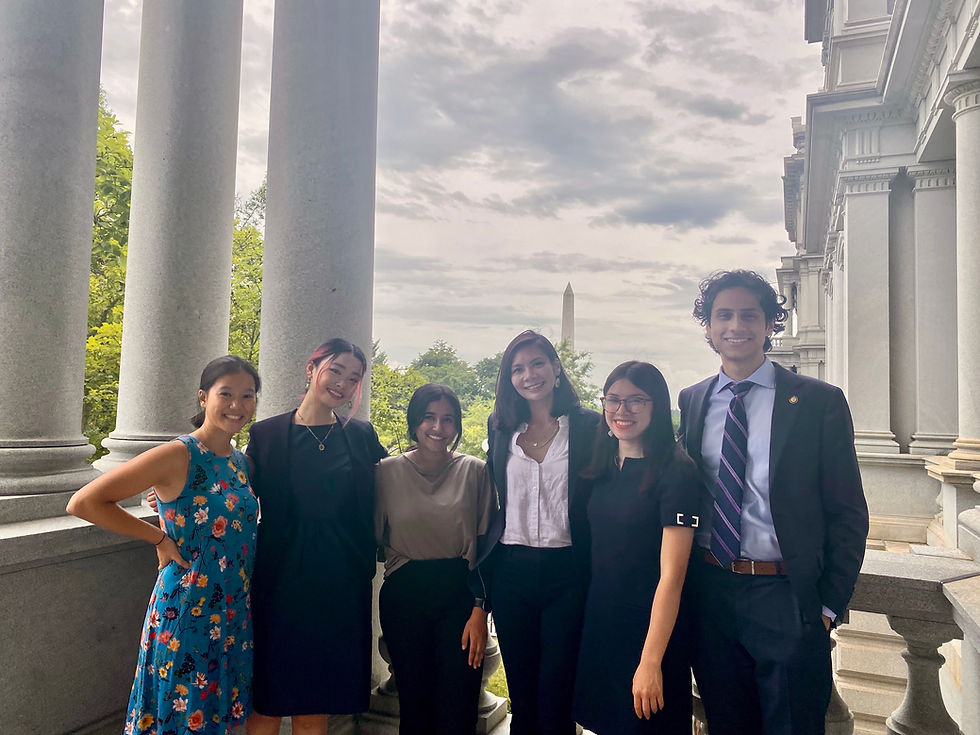How do you measure success as a public servant? At the beginning of the summer, I would have said it’s about the network you build or the quantitative impact you create. DC’s reputation as a bustling city full of transactional relationship-building definitely did not help. These past couple of weeks, however, have changed my perspective immensely. Through both WLP and my placement at the White House Initiative on Asian Americans, Native Hawaiians, and Pacific Islanders (WHIAANHPI), I have had the privilege of meeting leaders who view success as a public servant a bit differently.
Last Friday, I attended a Brown Bag event with Tavae Samuelu, the Director of Empowering Pacific Islander Communities. As a Tongan advocate, she contextualized her experience with public service through Tongan proverbs. One of these proverbs, tauvi vā, speaks to the value of transformational reciprocity in public service. It is a call to action to nurture and cherish the relationships we build. I found this perspective compelling because it showed me that success can be viewed as a collective effort to improve the world around you as opposed to a competition.
This week, I continued to discover new ways to define success as a public servant. On Monday, I heard from members of the Presidential Personnel Office, which included Gautam Raghavan and Linda Shim. When speaking about their motivations for joining this office, they underscored the value of creating a representative government. “People are policy,” said Raghavan.

WHIAANHPI interns at the EEOB
Later that day, I attended a WLP event with Nisha Biswal and Rich Verma, both of whom have extensive experience with US-India relations. Verma spoke about how his Indian-American identity allowed him to understand the nuances of US-India politics that were overlooked by previous ambassadors. In both cases, I understood success as representation. As South Asian Americans, my and my cohort's presence in these spaces was a big step in the right direction.

Meeting Nisha Biswal and Rich Verma
On Tuesday and Wednesday, I learned an understated but equally important aspect of public service: it’s not the same everywhere! During the think tank panel, Devi Nair, Neena Shenai, and Arohi Pathak spoke about the opportunity to solve complex policy issues through research. The next day, I attended a panel at the State Department, which focused on the intersection between public service and foreign policy. For example, Rajani Ghosh and Vivek Shivaram spoke about their experiences at the India Desk and the INR's Office of South Asia Analysis, respectively. As an International Relations major, it was exciting to hear about global post-grad opportunities I could explore while also maintaining a commitment to public service.

State Department Panel
The week ended with a WHIAANHPI team social at The Eleanor! We went duckpin bowling, ate nachos, and learned about each other’s lives outside of work. I found this experience special because it reminded me how, at the end of the day, we are all people trying to give back to the world around us. It doesn’t matter who you are or who you know; success in public service can look like anything.

WHIAANHPI Team Social at The Eleanor
Sincerely,
Ria Agarwal
Comments